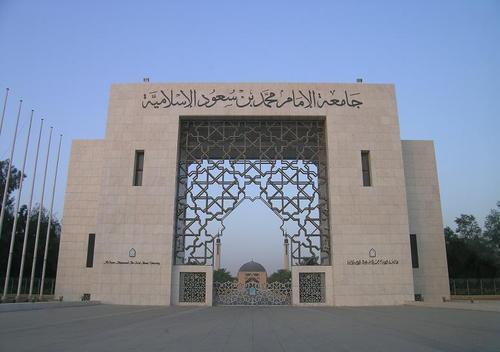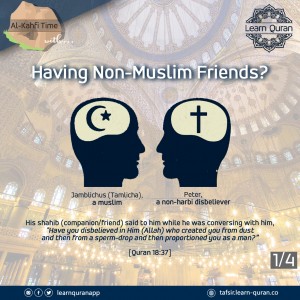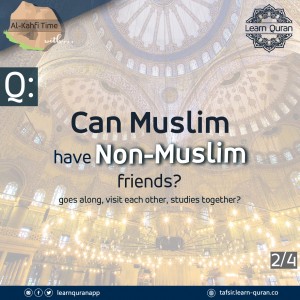Usianya terbilang belia, baru saja seperempat abad merasakan hingar-bingar dunia. Namun jangan terpedaya, sedikitnya jumlah usia tak lantas membuatnya sepadan dengan ilmu dan pencapaian yang diperolehnya.
Pencapaian sang Ustadz selama ini memang tak lepas dari peran orangtuanya. Ustadz Fajri berasal dari keluarga sederhana yang dekat akan agama. Tak hanya keluarga kecilnya namun seluruh elemen dalam keluarga besarnya dididik di bawah naungan Ilmu Islam yang kental. Kedudukannya sebagai anak pertama, menjadikan beliau mendapatkan pengasuhan maksimal dalam masa 5 tahun pertama usianya. Tak ada Taman Pendidikan Al-Qur’an maupun playgroup, pengasuhan usia dini murni dilakukan oleh kedua orangtua sebelum beliau memasuki Taman Kanak-Kanak. Nilai-nilai Islam begitu tersistem dilatih agar selamanya melekat di hati, salah satunya ialah penanaman rasa malu tatkala berbuat cela.
Bakat kecerdasan Ustadz Fajri telah terlihat sejak sangat dini. Disaat teman sebayanya baru mampu berbicara, pada usia 3 tahun beliau telah mampu membaca koran dengan lancar. Beliau pun memulai pendidikan di bangku Taman Kanak-Kanak tingkat B dengan usia yang lebih muda daripada rekan seusianya. Begitupun saat memasuki Sekolah Dasar, hingga sang Ibu pernah sesekali menantang Kepala Sekolah untuk menguji anaknya, dan menunjukan bahwa sang anak telah layak menapaki jenjang Sekolah Dasar tersebut.
Meski tergolong penyendiri, Ustadz Fajri merupakan anak yang berprestasi. Beliau selalu mendapat peringkat terbaik dalam kelasnya sejak duduk di bangku Sekolah Dasar. Suatu waktu beliau menempati peringkat 3. Kemarahan besar sang ayah pun tersulut dan membuat semua permainan yang beliau miliki dengan mudahnya lenyap dalam sekejap.
Dengan pemahaman yang sebegitu luas dan mengakar tentang Islam, tak ada yang menyangka jika beliau tak pernah mengenyam pendidikan formal agama sejak SD hingga SMA. Semua beliau lalui melalui pendidikan Negeri. Kerja keras yang penuh totalitas lah kunci besar beliau berada pada titik ini. Prinsip hidupnya adalah menjalankan apa yang telah digariskan Qur’an dan hadits. Sepenuhnya; seutuhnya. Sepuluh muwashaffat muslim pun ditegakkan dalam dirinya, dalam upaya menjadi muslim terbaik! Mencari role model yang sesuai dengan cita-citanya adalah satu kiat beliau untuk menjadi yang paling unggul dalam bidang keilmuan yang digeluti.
Dalam dunia pendidikan informal, tak banyak yang beliau jalani. Sesekali mengikuti sempoa, karate dan memperdalam bahasa Inggris maupun Arab dalam waktu yang singkat. Berbanding terbalik dengan pengalaman perlombaan yang ia selami. Dalam bidang non-akademis saja beliau pernah mengikuti lomba debat, pidato berbahasa Arab maupun lomba Tahfidz tingkat Nasional. Ustadz Fajri pun menguasai empat bahasa Internasional diantaranya Indonesia, Arab, Inggris dan juga Jerman.
Berbicara tentang sisi ke-Qur’annya, saat di jenjang Sekolah Dasar hafalan beliau hanya sebatas 2 juz atas dasar permintaan orangtuanya. Memasuki Sekolah Menengah Pertama, beliau lalui begitu saja tanpa hafalan yang bertambah. Hingga akhirnya saat SMA hafalan beliau pun bertambah menjadi 12 juz. Delapan belas juz sisanya belum dalam genggaman. Beliau menuntaskannya saat lima bulan pertama memasuki perguruan tinggi hingga utuhlah hafalan Qur’annya dengan mutqin. Yang menarik ialah, beliau tak hanya menghafal satu jenis Qira’at dalam membaca Qur’an , namun sepuluh Qira’at. Dimana masing-masing Qira’at terdapat dua jenis riwayat. Dan jika dijumlah secara keseluruhan, itu artinya beliau mampu menghafal dua puluh jenis bacaan Qur’an yang berbeda-beda.
Pada tahun 2009 ustadz Fajri memasuki jenjang perkuliahan pada jurusan Kimia, Universitas Indonesia. Sayang, restu orangtua yang tak di tangan membuatnya berhenti meski belum genap satu semester. Nyatanya, jalan lain yang lebih indah menanti. Beliau diterima di Imam Muhammad Ibn Saud Islamic University, Riyadh pada tahun yang sama.

Imam Muhammad Ibn Saud Islamic University, Riyadh
Tujuh tahun masa perkuliahan dimanfaatkan dengan sangat maksimal oleh beliau. Pada masa inilah, keilmuan sang ustadz berakselerasi dengan begitu cepat. Dua tahun pertama, beliau tak hanya menuntaskan hafalannya, namun juga menghafalkan beberapa kitab hadits dan beberapa matan cabang keilmuan Islam. Beliaupun melancarkan komunikasi Bahasa Arab dengan teramat fasih.
Tak hanya piawai dalam dunia akademis. Keeksisannya dalam berorganisasi dan berpolitik sudah terlihat sejak Sekolah Menengah Pertama. Beliau diajukan untuk menjadi Ketua OSIS sebanyak dua kali saat SMP, dan satu kali saat SMA. Namun semuanya beliau tolak hingga akhirnya memegang peran besar dan strategis lainnya di sekolah. Ketika memasuki dunia kuliah, beliau dicalonkan sebagai ketua angkatan Kimia UI 2009, yang lagi-lagi ditolaknya. Namun kemudian di dunia kampus yang lain, beliau diberikan amanah sebagai Ketua Forum Mahdzab Syaf’I. Dan forum tersebut menjadi lembaga terakhir yang beliau geluti sebelum akhirnya memutuskan untuk benar-benar fokus meniti akademis selama empat tahun berkuliah.
Pada tahun 2016, Ustadz Fajri menyelesaikan studi S1 nya dengan predikat lulusan terbaik. Indeks Prestasi Kumulatif yang diperoleh yaitu 3.9 dari skala 4. Oleh karenanya, ia mendapat hadiah berupa perjalanan Haji tak berbayar. Pada saat kuliah, beliau menjadi mahasiswa khusus yang diistimewakan oleh para Syaikh dan Profesor di Universitasnya. Begitupun pada masa Sekolah Menengah Pertama dan Sekolah Menengah Atas. Keterlibatannya dalam dunia olimpiade Fisika dan Kimia membuat beliau menjadi anak emas bagi guru-gurunya.
Setelah lulus jenjang S1, Ustadz Fajri memburu berbagai kesempatan untuk tetap dapat melanjutkan studinya setinggi mungkin. Takdir Allah menjadikan beliau diterima pada Universitas Oxford di Inggris, meski pada akhirnya beliau melepaskannya. Universitas bergengsi lainnya pun menanti, beliau kemudian diterima di King Saud University, Riyadh pada Jurusan Masters of Laws.

King Saud University, Riyadh
Terdapat beberapa hal unik dibalik seorang Ustadz muda nan cerdas ini. Salah satu makanan favorit sang Ustadz sejak kecil adalah permen Yupi. (Hmm..) Dan ia pun tak segan untuk membagikan apa yang beliau senangi kepada orang-orang disekitarnya. Beliau juga merupakan seorang penggemar conan, dan telah menamatkan komik-komik terbitan Negara Sakura tersebut. Tak hanya itu, Ustadz Fajri tergolong ke dalam pecandu Star Wars dan Sherlock Holmes, dan telah menuntaskan buku dan film-film yang diterbitkan. Namun nyatanya, hal ini tak lantas membawa dampak yang hanya memenuhi kesenangan duniawi. Akan tetapi mampu mempengaruhi pola pikir beliau dalam menghadapi pemikiran-pemikiran menyimpang yang marak berkembang.
Kini aktivitas utama beliau adalah sebagai manager di Yayasan BISA. Selaku Co-Founder, pekerjaannya ini tak begitu menyibukkan beliau. Hanya 3 jam dalam sehari alokasi waktunya diperuntukan untuk bekerja. Hingga banyak yang berpersepsi bahwa beliau seakan pengangguran, dengan segudang aktivitas harian yang lebih sering dipenuhi kontribusinya untuk ummat. Beliau rutin mengisi kajian dan khutbah di beberapa tempat. Diantaranya yaitu Masjid Ukhwah Islamiyah, Indonesia Qur’an Foundation, asrama LIPIA, BSD City, dan beberapa tempat lainnya. Beliau tergolong salah satu ustadz yang tak mau menerima bayaran akan ilmunya. Baginya balasan memberi adalah memberi. Sebab sejatinya transaksi memberi dan menerima ilmu hanya terjadi antara Allah dan hamba-Nya, bukan antar manusia yang hanya sekedar perantara.
“Sebaik-baik kalian adalah yang paling baik terhadap keluarganya. Dan akulah yang paling baik di antara kalian dalam bermuamalah dengan keluargaku.” (H.R. Tirmidzi)
Tak hanya ummat yang menjadi fokus pikirannya, hadits diatas pun dimaknai betul oleh beliau. Keluarga menjadi hal yang tak pernah luput dari perhatianya. Demi mengembangkan kemampuan kognitif kedua anaknya, Ustadz Fajri rutin bermain lego bersama setiap hari dan juga mengajarinya pendidikan Islam sejak dini. Ia pun rutin mengajari sang istri yang berstatus sebagai adik tingkatnya di bangku perkuliahan.
Membaca buku adalah makanan pokok seorang Ustadz Fajri. Entah sudah berapa ratus beliau tamatkan. Ketika beliau menggemari seorang tokoh penulis, maka semua karya tokoh tersebut akan beliau lahap habis sebagai bekal pengetahuannya.
Dalam beberapa tahun kedepan, Ustadz Fajri bertekad untuk melengkapi khazanah hukum Islam di Indonesia dengan menjadi seorang Pakar Hukum Ekonomi Islam. Beliau berharap dapat menciptakan konsultan Hukum perkara syari’ah sebagai sarana pemenuhan kebutuhan ummat. Untuk mencapai titik tersebut, sejak beberapa tahun silam beliau telah tergabung dalam Asosiasi Pengacara Syariah Indonesia (APSI) dan beberapa lembaga serupa lainnya.
Terakhir, Ustadz Fajri berpesan kepada pemuda-pemudi masa kini. Jika ingin menjayakan Islam, maka perdalamlah ilmu Islam tersebut lebih dulu sebagai landasan, acuan dan juga tameng. Kokohkan core ilmu islam yang berkorelasi dengan peminatan yang ditekuni, pelajari tasawuf dan juga akhlak. Lalu fokus dan totalitaslah dalam belajar. Kemudian barulah bandingkan dengan ilmu-ilmu Barat.
Jadilah seseorang yang ahli dan konsentrasi dalam bidang akademis yang sedang digeluti. Perkuatlah keahlian hingga kelak menjadi sosok rujukan banyak orang dalam bertindak. Disaat yang bersamaan, jadilah hamba yang dekat dengan Al-Qur’an. Yang baik bacaannya, yang tidak sekedar menghafal namun memahami kandungannya lalu mengamalkannya. Apapun profesi yang dijalani, memperdalam ilmu tafsir adalah kewajiban. Dan itulah yang akan menyelamatkan manusia dari segala bentuk penyimpangan dunia.
Ditulis oleh Defani Herbiana Arima untuk Learn Quran
Read More
















